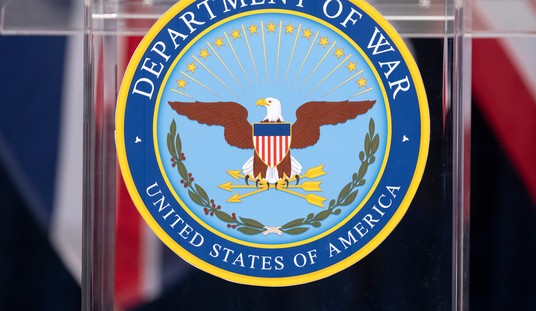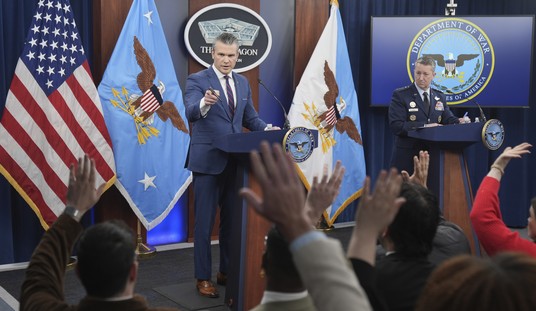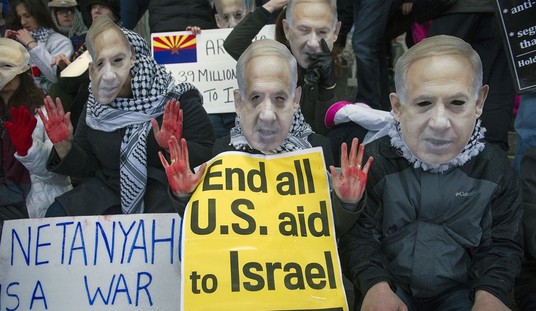Next month, elections will be held in Ecuador to determine whether current President Rafael Correa gets another term. Advocates of human rights and opponents of Hugo Chavez-style politics and policy should watch the election closely, because Correa purportedly fancies himself the successor to the Venezuelan President’s legacy in Latin America – no good thing.
Among other things, Correa has been restricting civil liberties, using outdated laws to stifle scrutiny of his actions as president and silence dissent:
…an assault is under way in Ecuador, a nation ruled with a heavy hand by a lightweight dictator who seems to wish he were Hugo Chavez of Venezuela.
The target: El Universo, a 90-year-old Guayaquil newspaper, one of the largest in Latin America and a leading voice for freedom and democracy in the region.
Columnist Emilio Palacio had the temerity to question actions by President Rafael Correa. In democracies, this is recognized as a duty of the press: to examine the moves of those in power. News organizations in free societies take this responsibility seriously – or should.
The angered president responded by filing criminal libel charges against the paper, Palacio and three newspaper executives, a move designed to shut down the publication and send a message: Forget about freedom of the press in this country. The four men were sentenced to three years in prison, and the newspaper was told to cough up $40 million.
Correa has also been criticized by Human Rights Watch for taking steps that appear to have further compromised Ecuador’s justice system:
Corruption, inefficiency, and political influence have plagued the Ecuadorian judiciary for many years. Correa’s efforts to reform the system could lead to a significant increase in the government’s influence over the appointment and dismissal of judges.
He has also, of course, been blasting foreign businesses for alleged abuses:
Ecuador’s president, Rafael Correa, said he would discuss a lawsuit against Chevron for environmental damage in Ecuador’s jungle areas with Argentine President Cristina Fernandez after plaintiffs took their case to that country.
…and apparently not just in the last year, either:
President Correa himself has been waving the bloody shirt, declaring Texaco guilty of “crimes against humanity,” threatening judges with prosecution if they don’t support the government’s position, and offering the plaintiffs state resources to pursue their case.
…while his government engages in similar, or maybe even worse, abuses:
In March, the Confederation of Indigenous Nationalities of Ecuador (Conaie) filed a lawsuit against President Correa and his government for alleged genocide of two native populations in the Amazon region…
[…]
Ms Chuji added that Mr Correa had failed in his promise to defend the interests of Ecuador’s indigenous population.
“The person that has infringed most on our rights in the past four years has been the president,” she said.
[…]
According to Conaie, the government is prosecuting 189 Indian leaders on the grounds that they are saboteurs and terrorists.
Several hundred protesters set off from an Amazon province where a Chinese company has been authorised to develop a huge open-cast copper mine.
Ecuador’s main indigenous organisation, Conaie, says mining will contaminate water and force people off their land.
…as, allegedly, do his political pals and allies:
In the town of Tenguel, in the banana-growing province of Guayas, a local environmental activist, Esther Landetta, has been waging a lonely — and dangerous — battle against the ongoing contamination of four rivers as a result of irregular and unmonitored mining activities that have been discharging toxic waste into the waters, endangering the health of the local population and threatening their agricultural livelihoods.
[…]
Her pleas have fallen on deaf ears, however, primarily because she says the processing plant causing most of the pollution happens to be owned by a close advisor to President Correa, Galo Borja, a former Coordinating Minister for Strategic Industries and former Undersecretary of Foreign Trade.
Amazingly, Correa appears to be on course to win re-election, potentially without even having to make it through a run-off, which would take place in April.
However, this week, big news broke that ties together several of these themes, and which could potentially cause at least a small hiccup for Correa as he seeks re-election.
An ex-judge in a major piece of long-running litigation in Ecuador is asserting that he was bribed to take the side of the plaintiffs, with whom Correa– he, the guy whose reforms appear to be further compromising the independence of the judiciary and he who is President of a country whose state oil company (Petroecuador) also appears to be an (un-sued) culprit in the matter in question– has publicly sided:
Today new allegations of deceit and wrongdoing were leveled against the plaintiffs’ lawyers bringing the already deeply troubled environmental suit against Chevron in Lago Agrio, Ecuador, which stems from Texaco’s oil drilling in the Ecuadorian Amazon between 1964 and 1992. (Texaco was acquired by Chevron in 2001.)
In Manhattan federal district court this morning, Chevron filed the declaration of a former Ecuadorian judge, Alberto Guerra, who describes how he and a second former judge, Nicolás Zambrano, allegedly allowed the plaintiffs lawyers to ghostwrite their entire 188-page, $18.2 billion judgment against Chevron in exchange for a promise of $500,000 from the anticipated recovery.
The bribery charge is completely new, and the ghostwriting charge is more sweeping and better substantiated than before.
To sum up: The ex-judge is alleging that he and another judge agreed to take $500,000 (a lot of money in a poor country like Ecuador) to let the plaintiffs’ lawyers ghostwrite a judgment that the President of the country allegedly wanted delivered up. The same President who has been taking steps that at least one human rights organization says would undermine the independence of the judiciary and who hardly looks like someone altruistically concerned about protecting abuses against, or righting wrongs previously perpetrated against, indigenous people who live within Ecuador’s borders.
Now, to be fair, Chevron has paid over tens of millions of dollars to cover the clean-up costs of pollution for which it was responsible in the Amazon, so it isn’t actually blameless here. Also, Chevron is apparently covering living costs, rent and similar incurred by the whistleblower.
But nonetheless, if what is alleged is true, that’s a situation so bad, it even makes the big, bad oil company look a little less… oily than others in the picture, including potentially the man himself, Correa.
How much news is this allegation going to make in the country itself, ahead of the election? Consider it, perhaps, a potential small speed bump on Correa’s road to re-election.
With luck, Ecuador will do some clean-up of its own on February 17. Or, failing that, perhaps pressure can be brought to bear on Correa to clean up some of his act going forward.














Join the conversation as a VIP Member